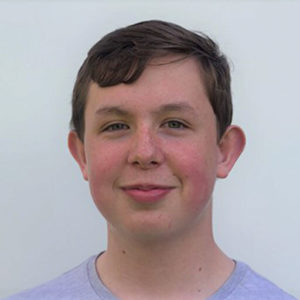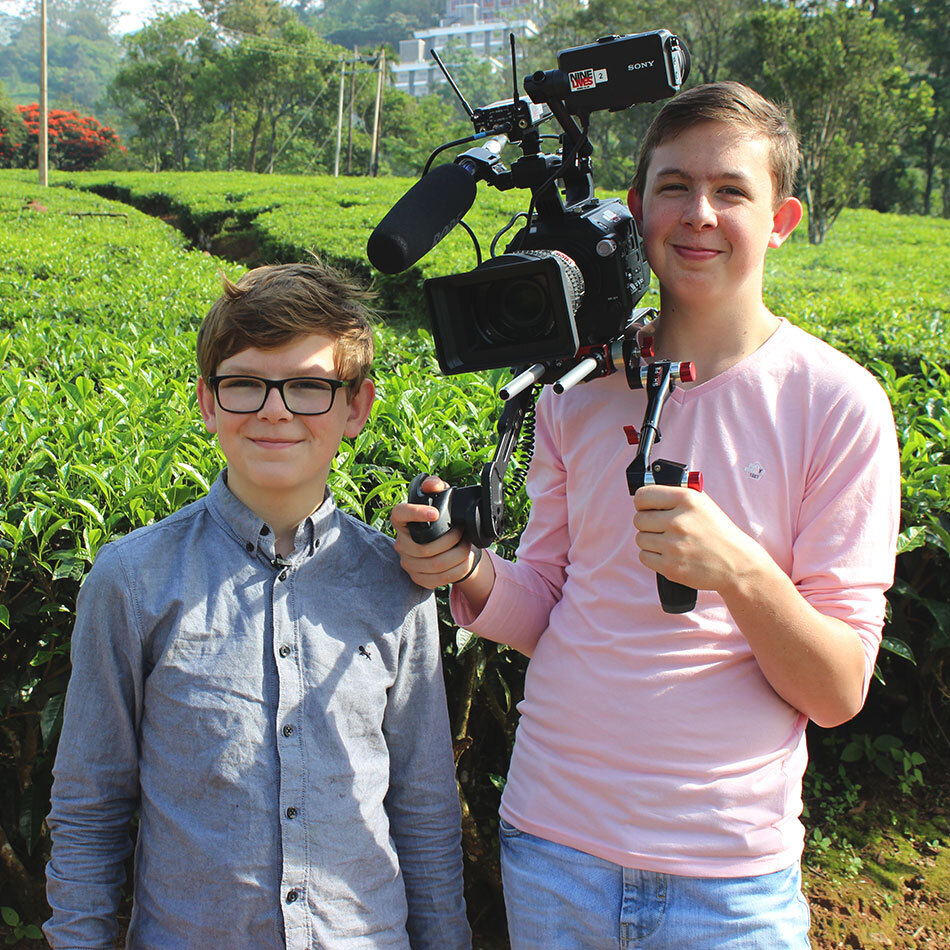Do you have an idea that you’re hesitant to pull the trigger on? I’d hazard a guess that your answer might be yes. Now, ask yourself this: what’s stopping you? When it really comes down to it, what is preventing you from sending that email, or making that phone call, or going outside right now and filming something?
These were the exact questions I was asking myself at 3 a.m. whilst adding more filmmaking gear to my Amazon basket. Was an extra lens really going to make me go outside and start filming something? It was then that I realised I was only standing in my own way.
That was my first step towards directing a BAFTA-nominated documentary at the age of sixteen. So if you think age, or lack of experience, is stopping you. Here’s why you should think again.
Finding a story
My problem was that I thought I didn’t have a story to tell. I had the skills, I had the desire, I just didn’t have anything to say. I was living in a small village in rural England, where the local news this year peaked at a cow getting stuck over a fence.
But, when you really start looking for them, there are stories absolutely everywhere.
Your family, your close friends, your town. All of the things you may think are boring or take for granted might have a hidden tale behind them. How about that headline in the local news? Or the crazy character who lives a few streets away? And, I’m sad to say, there’s always social issues to shine a light on: homelessness, obesity, child poverty, abuse etc.
I found a story I was passionate about, a story I truly wanted to tell, and I gave it everything I had.
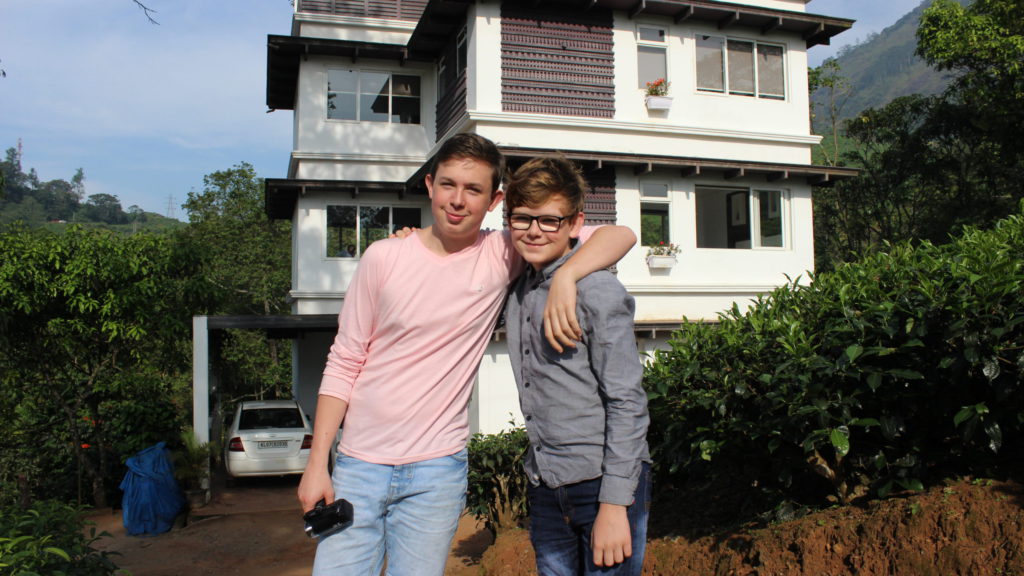
My brother Alfie has Type One diabetes, a relatively rare condition that will stay with him for the rest of his life. He’s an absolute fighter, but since his diagnosis, he has had to struggle with so many misconceptions about his condition. He was often told he got his condition because he was too fat, or even that he wasn’t going to live as long due to it, and it was really taking its toll.
Around 400,000 people in the UK live with Type One Diabetes, so he wasn’t alone. At the time, the condition received such little media coverage that the public didn’t really understand it. This really fired me up. I wanted people to understand Alfie’s condition. And so I asked myself the same question I asked earlier, “What is stopping me?”
At the heart of every film, long or short, fact or fiction, there is a great character, and a great story. Once you have those, you’re halfway there. And I had mine.
Pitching production companies
I knew I had a story worth telling, but Alfie wasn’t sure about sharing the intimate details of his life on television.
One of the most important conversations we had was about trust. We discussed boundaries and access. And I explained that he would be involved in everything we shot and could ask for anything to be removed.
Once he trusted the process, and trusted me as a filmmaker to tell his story, I put together a storyboard, grabbed my DSLR and shot and edited a one minute taster of him.
It was rough around the edges, but it showed that there was a story, and that was the most important thing.
So, now I had a taster I was happy with, what was the next step? I was staring at my laptop screen, with no contacts, no idea how to write a treatment, and no faith in myself.
Then I remembered, here in the UK, the BBC has a long-running series called ‘My Life’. It features kids of all ages who are doing extraordinary things around the world. I was a huge fan of it when I was a child, so I watched a few episodes and realised this was the perfect format for the story I wanted to tell.
I went onto BBC iPlayer, watched every episode of the latest series and found the names of the production companies that had produced each of the episodes.
I went onto their websites, looked over their most recent shows, and typed up notes on each company.
A life hack that has stuck with me for years is that you will never get a reply from an info@company.com email address. But you might get a reply from a john.doe@company.com.
I spent hours crafting emails based on the content the company had produced and their most recent work. I perfected a logline and a pitch for the idea and attached the taster.
In the end, I sent at least thirty emails out to people around the country, and to my surprise and excitement, one company emailed back an hour later.
Nine Lives Media, a production company in Manchester, wanted to find out more about the idea. I was put in touch with Sunny Kang, one of their producer/directors, and the project began to feel real.
When our idea became reality
With Sunny, I had someone with talent and experience beside me the whole way, someone who had worked as an undercover journalist on shows like Dispatches, and had directed the groundbreaking BBC THREE programme ‘Male Rape: Breaking The Silence.’ I felt Sunny could really make this project happen the way Alfie and I first imagined it.
Working with Sunny and his team, I threw absolutely everything I had at the project over the next few months. We brainstormed all kinds of ideas in search of the best way to tell our story. We decided we needed a clear, unfolding narrative to keep the documentary engaging as well as informative.
Sunny found out that India had the highest rates of Type One Diabetes anywhere in the world, and, sadly, the highest mortality rates. By visiting India, we could explore the struggles of living with diabetes, not just in the UK, but in developing nations too.
We knew from the start that we wanted to educate young people, and the best way we could do that was by encouraging the young people we met to tell their own stories. A large part of the research process became about finding young people who we could talk to honestly and openly about their condition.
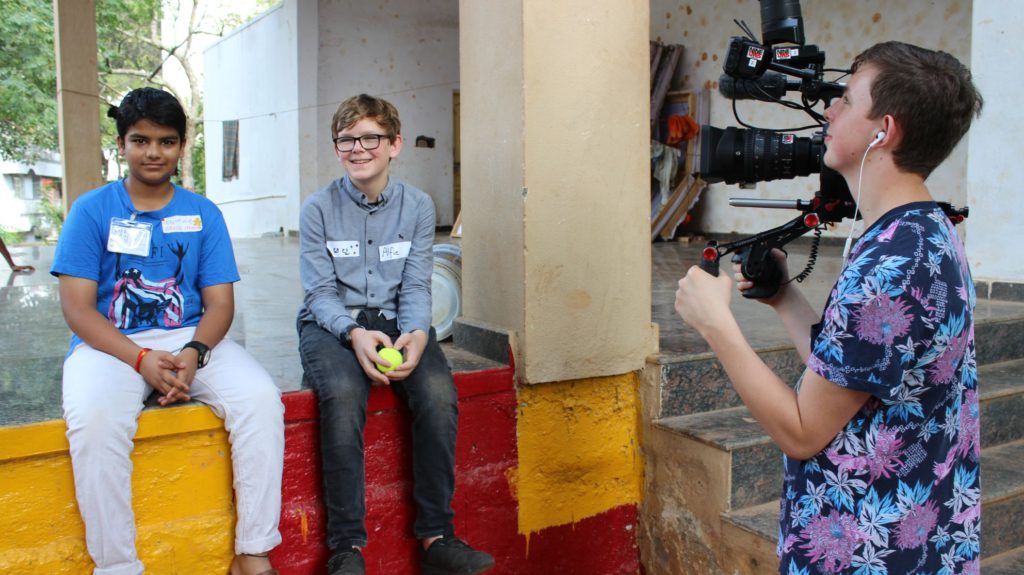
As the documentary was taking shape, it became clear that the journey Alfie was going on was about more than just diabetes, it was about self-confidence, self-love, and not feeling alone with his condition. We felt like that was something that would resonate with all the Type One diabetics that would watch the documentary.
Next came the hard part: getting the documentary commissioned. One of the most important things was that this was a story that I truly wanted to tell. Especially when taking an idea to a broadcaster like the BBC, passion is everything; you can’t half-ass it.
Months went by. We brainstormed, thought outside the box, went through round after round of commissioning until we got the call.
‘My Life: Blood Sugar Brothers’ had been commissioned by the BBC.
Making a documentary
The next few months were a whirlwind. We flew out to India in October of 2018 and shot for three weeks around the country. I learnt more than I had ever learnt in a classroom, shooting on the streets of Bangalore.
Finding contributors was the absolute key for our story. Having people who would trust us to share their story and would open up became the key for creating a documentary that was heartfelt and honest.
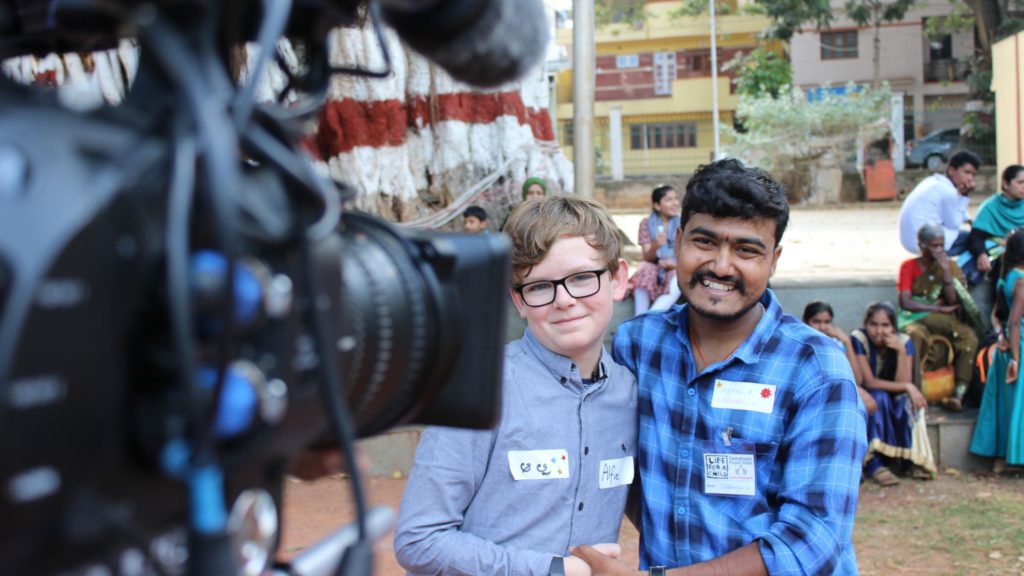
Syd, one of the contributors we met in India, stands out as someone who was truly at the heart of what this documentary meant. As an eighteen-year-old with Type One diabetes, he was using every bit of spare time he had to help others deal with their diagnosis.
He shared everything he could with us, talking openly and humbly about his experience with the condition, and inviting us into his home. He cared for Alfie like he was a younger brother and did everything he could to make us feel truly welcome.
He shared with us that he had lost a friend with diabetes, and left us in awe of how truly kind and positive someone could be in the face of such adversity.
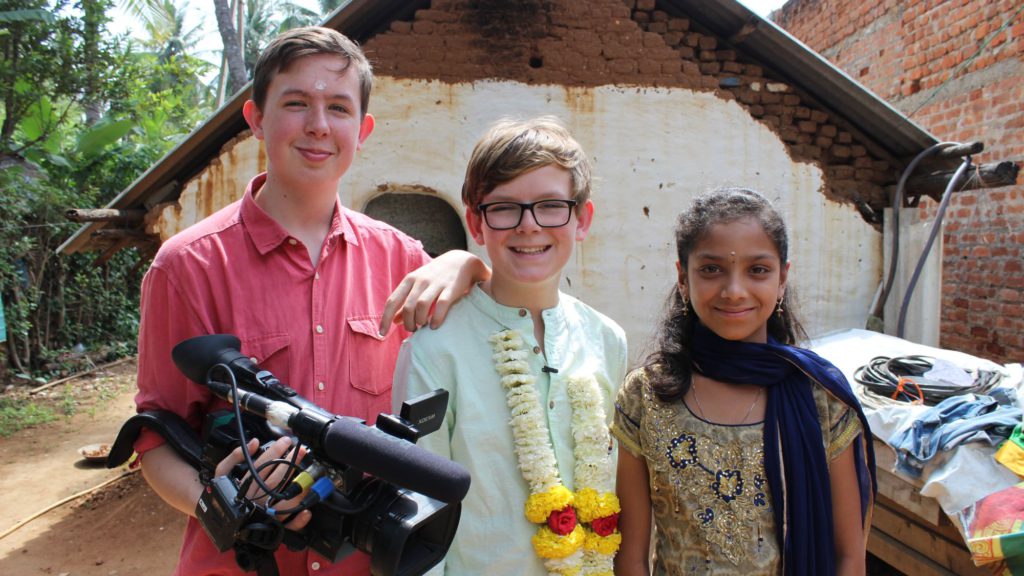
We had to follow the direction the story was taking us, and even at times when we felt there wouldn’t be enough content, or the story might not make the change we wanted to, we had to trust that with the right voices, and the right moments, it would come together.
When we returned from India, we were in the edit for months. Voiceover, post-production, colour and mixing, I was lucky enough to be a part of every aspect of the process, and I really felt my creative input was valued.
After rounds of reviews, revisions and a seemingly never-ending cycle of emails about the tiniest of changes, we were given a TX date.
Throughout the entire process, all I wanted was to make one child with Type One diabetes feel a little less alone because of ‘My Life: Blood Sugar Brothers’. After the documentary aired, we had so many comments saying that the documentary opened their eyes. I was overwhelmed by the number of people who had been touched by the film.
To then wake up one morning to the Tweet that it had been nominated for a BAFTA was the most surreal moment in my life. We had set out to get rid of the stigma around Type One diabetes and to open people’s eyes to what it was like to live with the condition. So, to receive this kind of recognition felt unbelievable.
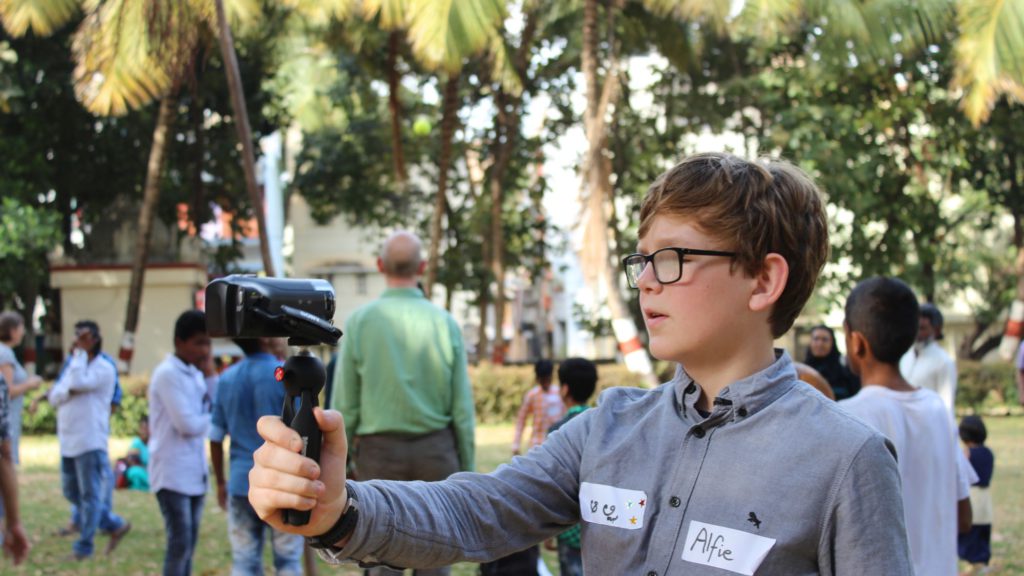
I was on the verge of tears down the phone to Alfie. I couldn’t believe that one email I had sent had changed our lives this much.
If I can do it, so can you
I think the biggest thing I learned through the entire process was that I thought that life worked wonders, and one day an opportunity would just turn up outside your door and that would be that.
I spent so many hours expecting something to suddenly change to give me my big break, but in the end, it was one email – just one email – that I sent on a Tuesday night, that changed my life.
So next time you’re looking to buy that “life-changing” piece of filmmaking gear, or next time you’re just sitting at home watching Netflix, remember that there is one person who has the power to change your life. And that’s you.
So go outside, grab your camera and start shooting.
This is what we were made for.
